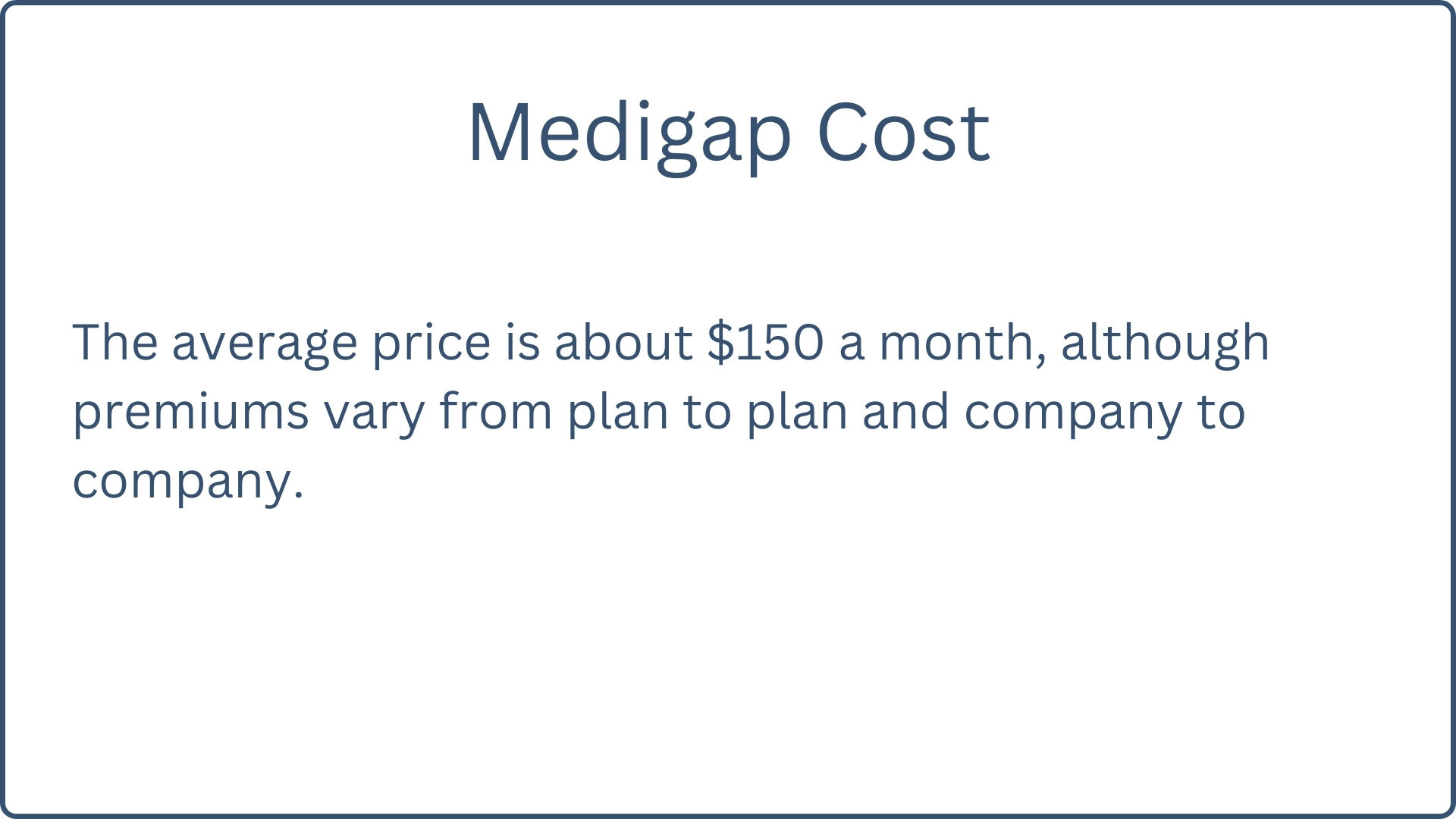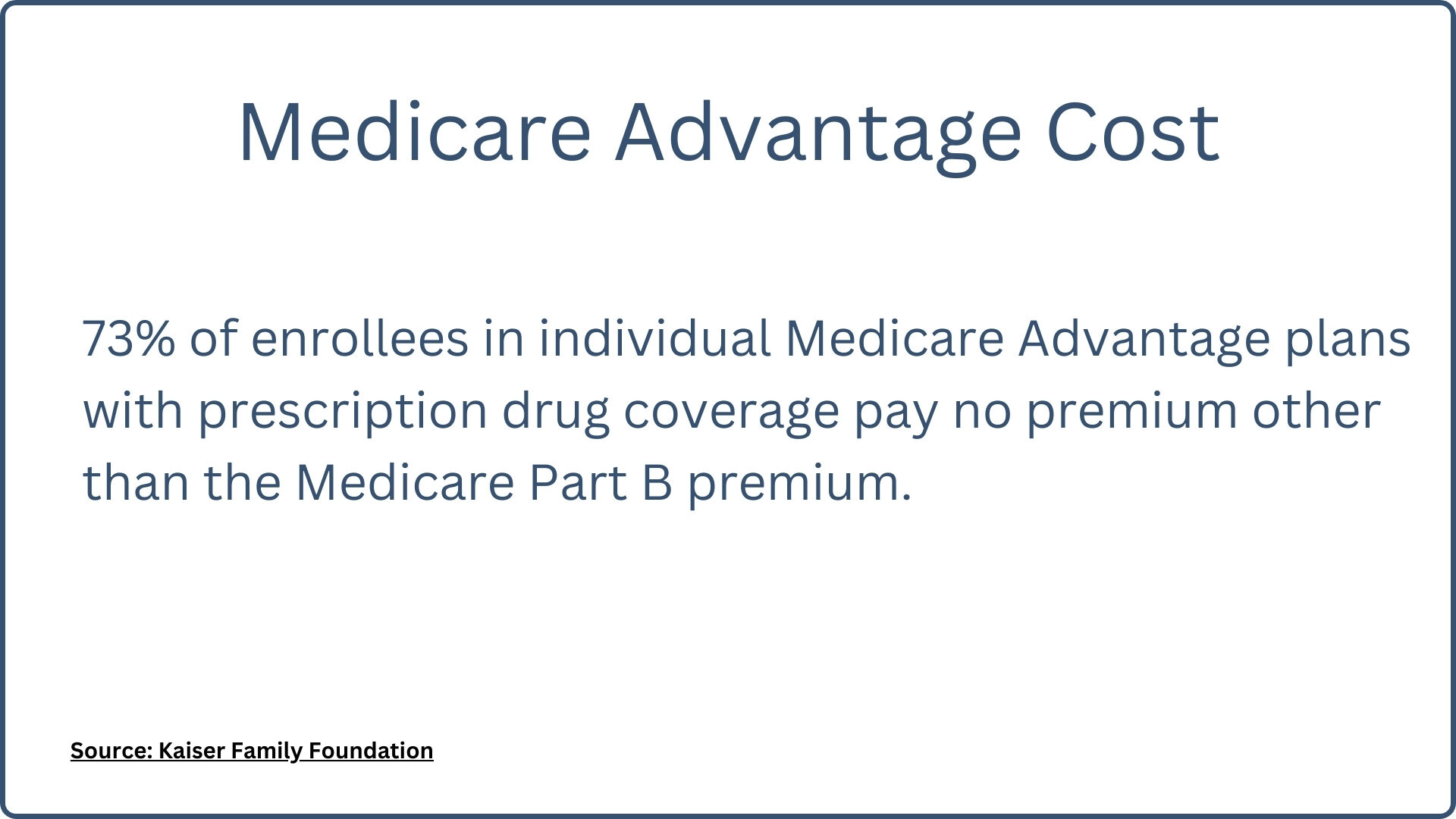Medigap vs. Medicare Advantage: Why Medigap Wins
Do I choose Medicare Advantage or Medigap?
That has to be the number one question we receive at my office. In an absolutely perfect world, I would 100% recommend a Medicare Supplement (Medigap) plan to anyone and everyone who can afford it.
My name is Mark Prip. I’m the owner of Policy Guide. We educate Medicare beneficiaries throughout the country, so I wanted to discuss this popular topic to help you understand – whether you are new to Medicare or thinking of changing plans.
I wanted to give you my feedback on the difference between these two plans over the past 15 years in the Medicare space.
So, let’s jump right in. I’ll talk about:
- Pros and cons of Medicare Advantage plans
- Pros and cons of Medigap plans
- Benefits and costs
- My final thoughts
Medicare Advantage Pros and Cons
Pros
Medicare Advantage plans have substantially lower, or even no, monthly premium. Yes, you read that right: low or no monthly premium. Most Advantage plans include prescription drug coverage all in one plan.
Most Medicare Advantage plans will also try to offer extras like gym memberships and maybe dental and vision discounts, whereas a Medigap plan does not.
Cons
Medicare Advantage plans have significantly higher out-of-pocket costs per calendar year, and in 2025, that amount is capped per CMS guidelines at $9,350.
Medicare Advantage plans do experience annual plan changes. Providers, doctors, and hospitals can be dropped out of the network or leave the plan on their own. Certain, if not many, procedures require prior authorizations.
Network restrictions exist when traveling, especially if you have an HMO. A PPO allows you to go in and out of the network, while an HMO requires you to remain in the network (unless it is for an emergency).
In a nutshell:
Medicare Supplement Pros and Cons
Pros
Let’s move on to the pros and cons of Medigap compared to Medicare Advantage.
One of the biggest, and I mean biggest, pros of a Medigap plan is that it does not require prior authorizations. You also have complete network freedom. You can go anywhere Original Medicare is accepted in the country—no referrals are required.
There are virtually no annual plan changes. We recently saw some changes in Medigap Plan F, but the benefits of Medicare Supplement plans remain the same year after year. They have significantly lower out-of-pocket costs compared to a Medicare Advantage plan. As I mentioned before, you also have the freedom to travel.
Cons
The downside, in comparison, is that Medigap plans can cost as much as $150 or more per month and can require a separate prescription drug plan.
Key points:
Medicare Advantage Benefits
Now, let me explain some of the benefits and the differences between the two plans, starting with Medicare Advantage.
A Medicare Advantage plan will have copays or coinsurance for all services. Let me give you an example.
Say you go to the doctor. Your plan may have a $0 copay for a primary care, or it may have a $50 copay for a primary care. Specialists may be $50 for copay per visit or a $75 copay per visit.
Things like outpatient testing and surgery, chemotherapy, those may have a copay, or they may require you to pay 20%.
As mentioned earlier, the higher out-of-pocket costs up to $9,350 in 2025.
Think about a Medicare Advantage plan like an employer-based or group health benefit plan that you had in the past. You pay a monthly premium; at the time of service, you’re paying a copay or a coinsurance. So, Medicare Advantage looks and feels like a group health insurance plan, whereas a Medigap plan looks very different from that.
Now, some Medicare Advantage plans – as I mentioned before – will include optional gym memberships. Most of them include prescription drugs and dental plans. However, they’re usually just discount plans.
Medicare Supplement Benefits
On a Medicare Supplement plan, you have no copays.
If you go to the doctor, you do not have a copay. If you go to a specialist, you do not have a copay.
You have no copays after the Part B deductible, so each calendar year, you pay that Part B deductible, and then everything is covered 100%.
That is significantly different from a Medicare Advantage plan, where you pay a copay every time you go. Medicare Supplement is far superior to Advantage, and let me explain why.
Medigap plans have significantly lower out-of-pocket costs for medical care and treatment. Because Medicare Part A and B are your primary, the Supplement will pay any remaining balances. Original Medicare generally pays 80%. The Supplement pays 20%, so if you go to the doctor, between Original Medicare and the Supplement, you shouldn’t pay anything after your Part B deductible.
If you go to the emergency room, the hospital, for testing, surgery, or chemotherapy, the Medicare Supplement pays the balance for any medical care that is approved and covered by Original Medicare.
There are also no network limits – I repeat – no network limits. So if you call our office and say, “Hey, I want a Medicare Supplement. Can you check that my doctors and hospitals are on the plan?” We will say, “Yeah, they are,” because there are no network providers, provider directories, or portals on a website to search. You simply go wherever Original Medicare is accepted.
Medigap Monthly Premiums
So, let’s look at the cost of a Medigap plan. As I mentioned earlier, the average price is about $150 a month, although premiums vary from plan to plan and company to company. Let me expound a little bit.
I’m in Florida, and we service 40 states, so the price for a Medigap Plan G in Florida right now for a 65-year-old may be $190-$258 a month. That same 65-year-old in Iowa or Indiana may be $118-$179 a month, for example.
| Medigap Provider | Florida | Iowa | Indiana |
| Cigna | $205.89 | $179.60 | $143.09 |
| Mutual of Omaha | $227.25 | $158.27 | $143.52 |
| Aflac | $245.11 | $125.81 | $146.13 |
| Aetna | $258.48 | $192.09 | $172.26 |
| Plan G sample quotes are for a 65 y/o nonsmoking male. |
|||
This chart shows that Florida is quite a bit more expensive than other areas of the country, but it gives you a general idea of the premium for most Medicare Supplement plans, and I’m always going to refer to Plan G because that’s the most popular plan today.
Medicare Advantage Monthly Premiums
Now, on a Medicare Advantage plan, the monthly costs are pulled directly from a report done by the Kaiser Family Foundation—I linked that report at the bottom of this page.
Kaiser did a study in 2023 that showed that 73% of enrollees in individual Medicare Advantage plans with prescription drug coverage pay no premium other than the Medicare Part B premium.
Your monthly cost for a Medicare Advantage plan has a 73% chance of being zero, depending on where you are. The remaining 27% may have a premium. It could be $10 a month or $100 a month, depending on the plan and the county you’re located in.
Final Thoughts
So, my final thoughts are this. One of the greatest differences that most agents will not tell you is that a Medicare Advantage plan requires prior authorizations. A Medigap or Medicare Supplement plan does not.
And what that means is – here’s a quick example:
You’re in the hospital. You have chest pain. They’re trying to figure out what’s going on. Depending on what that doctor orders, a Medicare Advantage plan could deny that test or require prior authorization (that may take hours or days) for the insurance company to approve.
Prior authorization always equals delayed care.
Medigap and Medicare Supplement plans do not work that way. Original Medicare is the primary payer. The Medigap plan is the secondary, so in that same scenario, you should experience no delays and no prior authorizations.
You have to decide based on your health history and the current state of your finances. What I tell people is that we can’t predict the future, and a lot will say, “Well, I’ll just jump on a Medicare Advantage plan because it’s free or zero premium, and then just hope that I do okay, and I don’t have any major medical problems.”
That’s an idea, but if you get on a Medicare Advantage plan and something changes in your health, there is a possibility that you then become ineligible for a Medigap plan if you’ve been on that Advantage plan for more than 12 months.
With Medigap, you pay your premium; that’s it. It’s set it and forget it.
-
Think about it this way:
A Medicare Advantage plan is like a used car you pay cash for; you go out, find a used car, and pay $4,000 for it. So you do not have a monthly car payment. Yes, your monthly payment is $0 because you own the car outright, but every time that car breaks down or needs service, you’ll pay a percentage (or a copay) every time that car needs repair or service. You need tires, an oil change, your engine explodes, or your transmission goes out.
Anything that happens, you’re fully responsible for a copay or a percentage of those car bills, so to speak.
Now, a Medigap plan or a Medicare Supplement plan, in my opinion, is like a brand-new car that you drive off the lot. It’s brand new and has a monthly premium (car payment). But, whenever that car has problems, you don’t pay anything except for that small Part B deductible.
The Medigap plan is far superior. You can take it to any service shop you want to. It’ll pay to have your tires replaced, for oil changes, engine repairs, and transmission repairs, all at 100%.
The only reviews we ever do with Medigap clients are to look at, “Hey, do we have another company that offers a lower premium for what we put you on a year ago or five years ago, and you love the plan, you just want to reduce the monthly premium?” So that’s really all of the reviews we do on Medigap: simply the monthly premium.
Both of my parents and both of my in-laws have Medicare Supplements, and they are very tempted by Medicare Advantage. Every year, I say, “Don’t do a thing. If you can afford your Medicare Supplement premium, pay that,” and they’ve been very grateful because they’ve used it very, very much.
Again, you have to decide which is best for you. I highly recommend Medigap if it’s within your budget. If you have questions, give us a call or shoot us an email. We’re happy to help.
Sources: Kaiser Family Foundation | Medicare.gov






